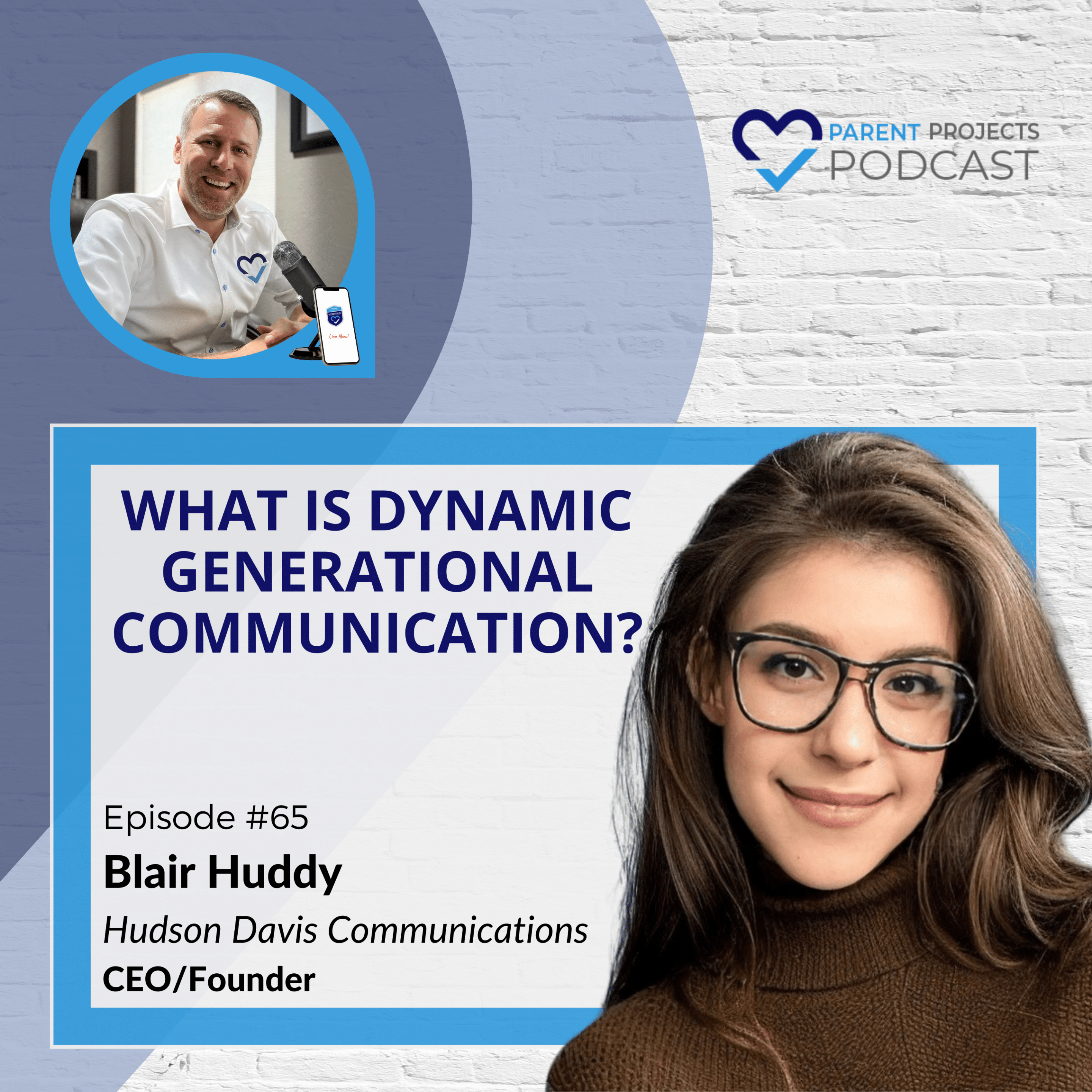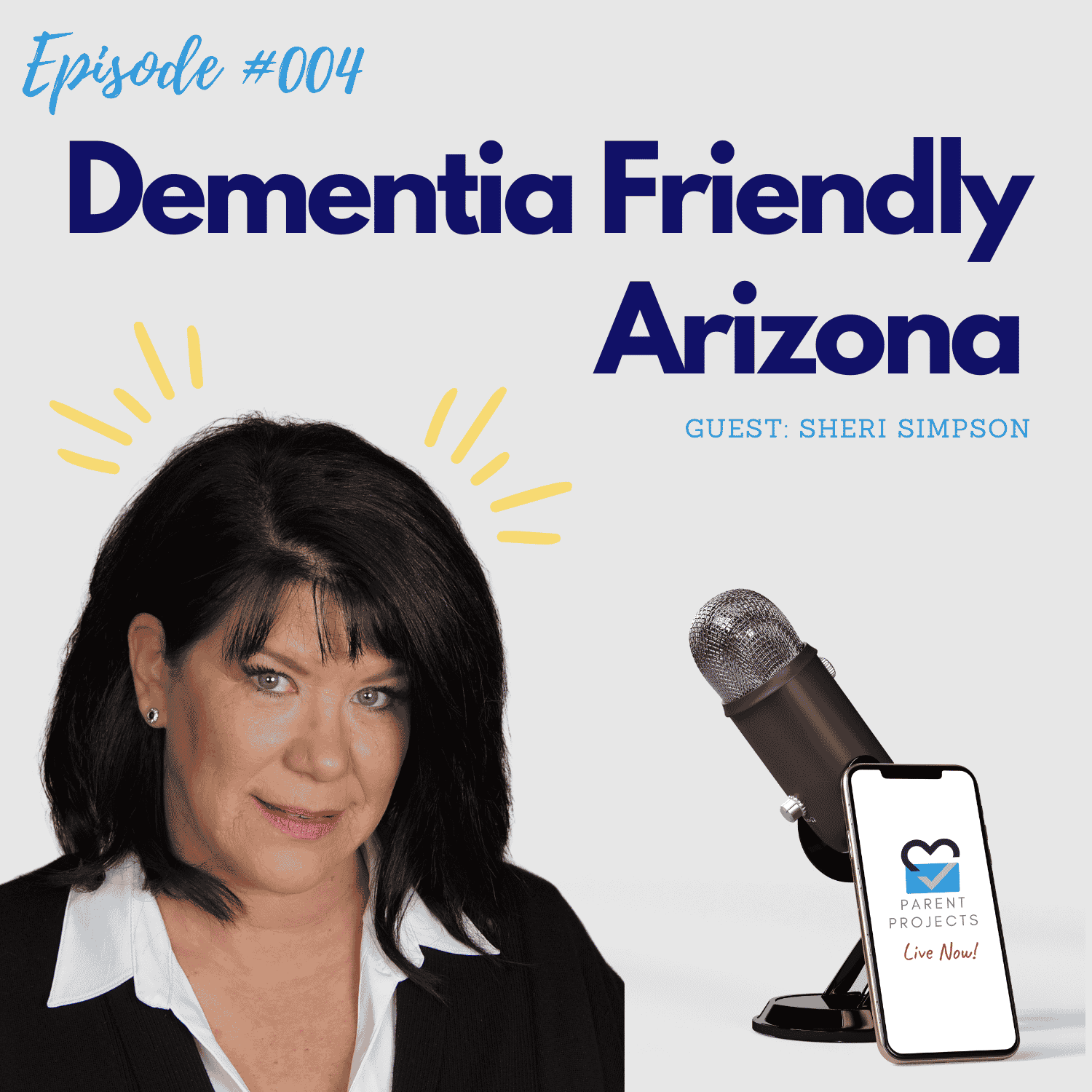Episode Transcript
[00:00:05] Speaker A: Hi, and welcome to Aging in America. I am your host, Bena Coleman, and this podcast is brought to you through parent projects. We have such a fun episode planned for today. We are going to be discussing loneliness. However, we're going to be giving people options and ideas on how to overcome it. I am excited to introduce you to a very close personal friend of mine, Heather Sussman. Heather, thank you for being with us today.
[00:00:28] Speaker B: Hi, Veena.
[00:00:30] Speaker A: So, Heather, as you know, and you've heard me say this a million times, but our listeners are working through the aging process with their aging loved ones. So, you know, they're the caregivers of their aging loved one. And we know that loneliness can be a real problem in the elder community, and we want to make sure that there's some options. And I know with your love for the furry friends that we can give them some ideas on how incorporating a new pet or animal into their lives will help. So right off the bat, we're kind of just going to dive into what you feel like are the emotional benefits to having a pet with someone who feels lonely.
[00:01:08] Speaker B: Yeah. Well, thank you again for having me today. I've been part of the animal health industry for the past 13 years, and I feel really passionate about all of the furry friends and how they can really help all people, especially aging loved ones. So anyone who's had a special pet knows how wonderful they are, how they can help you emotionally, physically.
And there's a whole team of people that actually do studies on this as well. So we have a lot of research behind us. Talking about the mental well being pets bring to your lives. Helps reduce anxiety, depression.
You get companionship physically. It's a wonderful thing to have a pet. You know, you take them on walks, it gives you a reason to wake up in the morning. So there are just so many different benefits that pet ownership can provide.
I really believe in all that they can do for people.
[00:02:14] Speaker A: So I love that you actually know there are people that study this like, it is so important. And not every elderly aging person is lucky enough to have so much family and friends around. So, like you said, having these animals of any kind, you know, I'm not sure if cat or dog is better or not. Well, whatever. If they have a furry friend in any way, it brings up so much benefits, emotionally, physically, like you said.
And do you find that when you're studying this stuff and you're learning about it, they might not go on walks with their loved ones, but that's are their animals, but that's okay, like, as long as they just have that animal with them.
[00:02:53] Speaker B: Yeah.
[00:02:54] Speaker A: It's still the big benefit.
[00:02:56] Speaker B: Oh, absolutely. So what we found, or some studies, I found 72% of people believe human interaction with their animals is benefit overall for the community. So now we're thinking outside of just, you know, seniors, but the whole community benefits from that. 85% of people say having a pet reduces their loneliness. So there are some really, really powerful statistics to kind of support this idea of pet ownership and increasing well being for the person and the whole community.
[00:03:36] Speaker A: Oh, my gosh. Well, 85% is so high. I love that because we talk about on this podcast, a lot is quality of life.
[00:03:43] Speaker B: Yeah.
[00:03:44] Speaker A: And 85% of people saying that an animal is bringing them better quality of life is pretty good. I would say. That's amazing, actually.
[00:03:54] Speaker B: Yeah. And this research institute that's put a lot of time and money into studying these things, they also found 76% of people believe that their human pet interactions decrease their feelings of loneliness. So again, a really powerful statistic to help support this idea.
[00:04:16] Speaker A: So I love it. You love it? I know most of our listeners are going to love it. Some people might say they feel so overwhelmed, they cannot imagine taking care of anyone else at this time.
Are there any particular kinds of animals or breeds that you would recommend that are lower maintenance so they can get this better quality of life?
[00:04:36] Speaker B: Yeah, absolutely. It's such a good question. I think it's really important to think about, too. You know, adopting a pet is a commitment. You want to make sure their personality fits what you're looking for. So researching breeds will be really important to get the type of companionship you're looking for. I think lap dogs, smaller lap dogs for seniors would be a really good fit. So like a cavalier King Charles, a bichon piece, or even a pug would be a really awesome.
Those breeds would be great to look into, a little bit more low energy, affectionate, great companions.
There are certain kinds of cat breeds as well that they kind of play by themselves a little bit more. Very sweet and affectionate. So let me grab the name of that one.
[00:05:37] Speaker A: Yeah. And while you are looking, I'll let everyone listening know. We're going to add a link to our show notes about low maintenance breeds. It's just a really nice way to find that companion for your aging loved one. And then, truthfully, you don't have to do so much work yourself caring for it.
[00:05:55] Speaker B: Yeah, absolutely. And so I'm more of a dog person, although I love all animals. So thank you for bearing with me while I pull up the american short hair. For cats, that's a really great recommended breed.
Affectionate, playful. And like I said, they kind of entertain themselves so, you know, you don't have to be chasing them around or, you know, running around with them.
[00:06:24] Speaker A: So, as you know, I'm also a dog person, but I do see people with cats walking them. Is this something that is true? People can actually walk their cats like a dog, or are they more in home?
[00:06:36] Speaker B: I mean, I think they're more in home type animals, but I suppose you can walk anything, really.
[00:06:42] Speaker A: Yeah.
[00:06:44] Speaker B: So nothing wrong with that. But, yes, I do believe, yeah, it's mostly there. Yeah. In the home.
[00:06:51] Speaker A: So this is all amazing. You know, you're passionate about the animals, I'm passionate about the elderly. Combining the two really makes such a difference. It can make such a difference in so many people's lives. What is your story, Heather? Why are you so passionate about animals and working with them and all this good stuff?
[00:07:10] Speaker B: Yeah. Well, I grew up wanting to be a veterinarian.
I've always loved animals and hoped I could do something with them when I grew up. I didn't really take that path at first.
I ended up finding the company I work for now, a leader in animal diagnostics and health. And I just really believed in the vision and felt like I, I could come full circle even though I wasn't a veterinarian. What I do helps veterinarians and in return helps animals. And so it kind of combined my skills, my skill set at work with my passion for animals and always wanting to be a veterinarian. So it's a really, really great fit for me personally, but it's just feel good. I mean, I walk into work meetings and I get to play with puppies and talk about products and services that really, really help the animals and the people that love them.
So I feel. I feel really proud to do this job.
[00:08:13] Speaker A: I feel like you are making a lot of people jealous that this is your job.
[00:08:17] Speaker B: Well, I mean, you know, there's still a lot of work involved, but it does feel really good to know that some of the products I support, you know, go to having pets live a better quality of life, and then they get to help those that love them, too. So to win all the way around.
[00:08:36] Speaker A: And to top all this off, I've heard this so much. You talked about rescue dogs earlier in the show, but, you know, I hear the saying, like, who rescued who? Yeah, I think that's very true when it comes to all this.
So you probably know a lot of resources, which is something we'd love to give our audience. So let's say my dad had never had a dog, but he wants one. He is elderly. Where do we start? Where would I even begin to look for this?
[00:09:04] Speaker B: Sure.
I believe, you know, doing your research, number one. So let's think about breeds that would be a good fit. Kind of like the ones I outlined earlier, like a Bijon cavalier, King Charles, some of those lap dogs. If that's what's a good fit, you know, for your parent, then you can go and look at rescue groups specific to those breeds. So that would be my recommendation. I mean, there are shelters and groups filled with animals, wonderful pets looking for their forever home. And so I really like that option.
My family, we really like poodle mixes. So our recent addition to our family, we were looking at the Poodle rescue group. So they had poodles of all different ages, different stories. You can kind of get to know them, and their foster families will share more about their personality. So you really get to know what animal you're adopting and be sure it's a good fit for your needs. So I would recommend that.
[00:10:10] Speaker A: Yeah, I agree with you. I would recommend me rescue path as well. So I think that's a great, great thing. So, you know, this is all positive and so great. But let's say it does get to the point where the dog or cat or the animal has helped so much. But now my dad's at the point where he can't take care of the dog, I can't take care of the dog, or maybe, you know, he's passed. What do we do with the dog or the animal at that point?
[00:10:36] Speaker B: Yeah, I know that's a really tough situation for a lot of people at that point. I would recommend a lot of these rescues. They're no kill rescues. You can bring the animal back. They'll accept it back anytime. I know that's not ideal. We don't want to send it back to a foster home or a rescue group, but that could be an option. I think, talking to assisted living facilities, you guys probably know more than I do, but I do know they accept pets in some facilities, and that could be really beneficial for a parent and the other people at the facility to enjoy the benefits of having that pet around. Too many as well can adopt.
[00:11:25] Speaker A: I haven't even thought about that option, and that is such a wonderful option.
I have a personal experience where I had a loved one in a facility, and it was a dog friendly facility, and it was so wonderful for everyone that would visit him and him himself. So. Wow, that's a great. That's great. Thank you.
[00:11:43] Speaker B: Yeah, they bring a lot of joy. So I would. Those are the routes I would go, obviously. Look and see if you can find any facilities that would take, you know, your parent and their pet.
Going back to the rescue group, you found it, adopting to family and friends, all good options.
[00:12:02] Speaker A: So we talked about the resources you have. It's, you know, do your research, reach out to these rescue or no kill shelters if you're looking. But is there a benefit or disadvantage to getting a mobile groomer once you have the dog? And are there mobile veterinarians if the elderly person just cannot get out?
[00:12:23] Speaker B: Yes. I'm so happy you brought that up. There are so many resources now to make pet ownership a lot easier. So just like you said, mobile grooming, mobile veterinarian services, there's a ton of them now. You could do rover or taskrabbit for walking your pets, cleaning up after them. You could do so many services now where they will mail you prescriptions or dog food. So resources are aplenty. And I think we've done a lot. We've done great work since. Since COVID too, expanding some of these resources. So a lot of veterinarians that I work with started curbside service during the pandemic, and they still offer that as an option. So, you know, someone can bring the pet, they'll come out, take the pet in, provide medical care, and bring it right back out to your car. So in addition to having those mobile options, you know, curbside service is great, too. So a lot of people and services to support you.
[00:13:31] Speaker A: I love that the mobile is such an option because for the human seniors, we always try to get people to go mobile as well for their mobile PCP, their primary care physician. And I always say, if it's mobile and you can do it, just do it. It saves someone a trip in the car. It saves, in this case, the animal getting in the car, all of that.
[00:13:54] Speaker B: Less stress for everybody. And, you know, I'm not a senior yet, but using mobile services helps me so much, too, for my own pets. I have two little kids and a busy job, so it's very easy to know that they'll just show up at your door, take your pet, and, you know, give them the service they need.
[00:14:17] Speaker A: Well, I love it. I love these resources, and I honestly bet a lot of people didn't know about all the mobile options. So thank you for mentioning those.
And again, I know I said earlier, but we will be putting all these resources in the show notes, so make sure to check those out before we wrap up today. Heather, have I missed anything you think is beneficial to people who are looking to get a dog?
[00:14:40] Speaker B: No, I think we've covered it. I just really believe in the value animals can bring. I really encourage everyone to do your research. Make sure it's a good fit.
It's not going to do anyone any good. If you get a Jack Russell who's high energy and you can't physically take care of them, that's not going to be a good experience. But when you have a calm, cuddly animal that helps you feel less lonely, less anxious, you know, it's a win all the way around. So I really encourage everyone to do your research and see what animals are out there.
[00:15:22] Speaker A: I think this is great information. It's so fun to know that no matter the age, you can still get that furry friend of yours and just live that better quality of life, which, like I said, we talk about a lot and is so important. Yeah, Heather, it's been so fun having you on the show today. I just think it's been great. Thank you for sharing your time, talents and treasures with us.
[00:15:42] Speaker B: Thank you guys so much. I really appreciate it.
[00:15:50] Speaker C: Well, that's it for the team this week and thanks for joining us. If you enjoy the content, remember to subscribe and share this episode on the app that you're using right now. Your reviews and your comments, they really help us expand our reach as well as our perspectives. So if you have time, also drop us a note. Let us know how much doing for tips and tools to clarify your parent project, simplify communication with your stakeholders and verify the professionals that you choose. You can find us on YouTube, follow us on Instagram and Facebook. Thanks again for trusting us until our next episode. Behold and beheld.
[00:16:23] Speaker D: Thank you for listening to this parent projects podcast production.
To access our show notes, resources or forums, join us on your favorite social media platform or go to parentprojects.com.
This show is for informational and educational purposes only.
Before making any decisions, consult a professional credentialed in your local area.
This show is copyrighted by Family Media and Technology Group, Inc.
And Parent Projects, LLC.
Written permissions must be granted before syndication or rebroadcast it.


